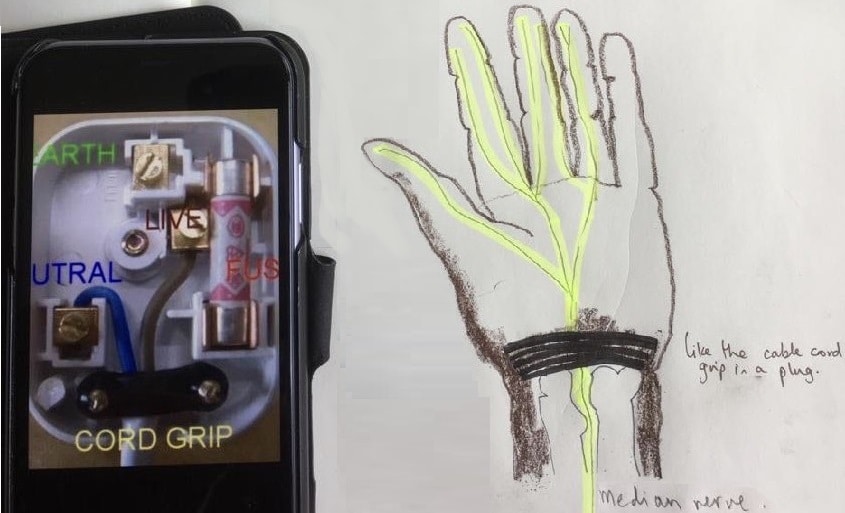

Gareth Thomas (right) is the Business Manager at West Quay Medical Centre, Barry, Wales. He is on Twitter: @GarethWThomas1
Across the UK, balancing capacity and demand within primary care has become a challenge, raising concerns about patient access.
In Wales better access to GP services has been a goal for many years. The current Government continues to aim for improved access to GP surgeries, making it easier to get an appointment. The Welsh Government published Access Standards in a revised 2019 Welsh GMS contract. Practices are expected to become compliant with these standards by 31st March 2021.
Possibly the most controversial of these was Standard II: 90% incoming telephone calls to be answered within two minutes of the end of the recorded message. This arbitrary target only measures the efficiency with which the reception team answers the phone, not effective care thereafter. This target mitigates against those practices who do not own their own telephony infrastructure, such as practices within health board premises, which are less able to access telephony data to demonstrate their baseline performance, and improvements over time.
This arbitrary target only measures the efficiency with which the reception team answers the phone, not effective care.
Also problematic, Standard IV: 25% of pre-bookable appointments to be available online. Those practices offering “open” surgeries, which may be popular with patients without a pre-booked appointment, found this harder to achieve: patients accustomed to on- the- day access required fewer routine online appointment bookings, often amounting to less than 25% of the remaining appointments.
We undertook a system-wide review of patient access at the authors’ Practice in South Wales during 2019-20, ending just before the COVID pandemic struck. Co-production was a key aspect, with patients as integral members of the practice improvement team. Using the Principles of Prudent Healthcare we aimed to deliver effective care navigation at the first point of patient contact, ensure all members of the multi-disciplinary team saw appropriate patients, re-route non-clinical requests, re-purpose previously wasted appointment capacity, and encourage the submission of administrative requests via the practice website, not the phone. A senior clinician was co-located in reception each morning, to train and support the reception team to improve patient flow. Quality improvement methodology was used to evaluate small tests of change, and support implementation of changes that demonstrated improvements.
We learned that the solutions to improving access were complex, that patient need was not the same as patient demand, and that public awareness of primary care team roles was limited, leading to a default request for a GP appointment. However, we made significant improvements to patient access within existing capacity using a focus on patient flow downstream from reception, using the skills of primary healthcare team members in the most safe and effective way possible: our improvements were not driven by the Welsh GMS Access Standards.
We made significant improvements to patient access within existing capacity.
In March 2020, as the pandemic struck, the practice switched overnight to a total triage system, prioritising those patients with the greatest health need first, and aiming to reduce the spread of COVID- 19 infection within our premises.
We monitored the impact of the COVID pandemic on our services, using continuous data measurement. Our telephone data during the pandemic showed that total call volume increased initially, then decreased below average, and has since returned to usual levels of demand. Statistical process control (SPC) charts show increased variation in demand, which is challenging to manage.
The SPC chart (click to enlarge) shows longer call answering times since COVID-19, (known in QI terms as special cause variation) in a previously stable system. COVID-19 has altered the way primary care services are accessed In our view the COVID-19 pandemic offers a unique opportunity to take control of how finite Primary Care resources are shared between those that use them. Clinical triage could prioritise those patients with the greatest need. Working with patients we could develop a comprehensive menu of patient access routes that offers options for all. The goal should be to offer care as defined by the NHS pillars of quality: effective, efficient, timely, equitable, safe, and patient-centred care.
Perhaps the revised patient Access Standards, due to be published by October 2020 will focus on patient outcomes as a measure of quality of care, rather than the time based- target outputs that are currently rewarded by Welsh GMS contract.
Featured photo by Gaurav Dhwaj Khadka on Unsplash










[…] Incidentally, we also monitored the impact of the COVID pandemic on our services, using continuous quality improvement measures. Our telephone data showed that total call volume increased initially, then decreased below average, and returned to usual levels of demand. We subsequently wrote a BJGP article outlining how COVID changed our ability to meet the Welsh Gover…. […]